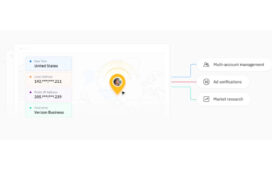Data analytics is the process of reviewing, studying, and understanding data to find useful insights or spot trends. It helps companies and organizations improve how they work and how well they perform. There are many different career paths in data analytics, each one focused on solving a specific type of problem. For example, some data analysts look into supply chain problems, while others study data to figure out how to attract and keep customers. These are just a few examples—there are many other areas where data analytics can be applied.
What Does a Data Analytics Degree Program Involve?
There are several types of Data analytics degree programs that can help you get started in data analytics. Some schools offer full degree programs focused on data analytics, while others offer degrees in areas like business or computer science that include an option to concentrate on data analytics. Both types of programs are designed to teach you skills and techniques that may help you get ready for a career in the field.
Comparing a Data Analytics Degree Program to a Concentration in Data Analytics
Data Analytics Degree Programs
A full data analytics degree program is centered on teaching both technical and soft skills related to collecting and analyzing data. You’ll likely take classes in areas like data mining, managing data, predicting future trends, and presenting data in clear ways. If you’re working on a bachelor’s degree, your program will also include general education courses. Graduate programs, such as master’s or doctoral degrees, usually skip general education but may require a final research project or thesis instead.
Degree Programs with a Data Analytics or Data Science Concentration
Some undergraduate business degree programs include an option to focus on data analytics. These programs combine general education courses, business classes, and a few specialized data analytics courses. This type of program is a good choice for people who want to build a strong foundation in business while also learning how to use data to support decision-making.
Computer science degrees with a focus on data science or data analytics also include general education, but the main courses will cover programming languages, algorithms, and operating systems. The specialized courses in data science might cover topics like machine learning, data analytics, and how to manage large sets of data.
If you already have a bachelor’s degree, you can consider a graduate degree with a focus on data analytics. Graduate-level programs such as a master’s or doctorate in data analytics will focus mostly on analyzing data. You might also look into an MBA or a graduate computer science degree with a data analytics concentration—these programs include courses in data analytics that support the main curriculum.
Data Analytics vs. Data Science
Although they are similar, data analytics and data science are not the same. One way to understand the difference is by looking at what data analysts and data scientists do.
What Does a Data Analyst Do?
People who work in data analytics are often called data analysts. Job titles that may involve data analysis include operations research analyst, management analyst, and computer and information research scientist. Data analysts use different tools to study large sets of data. They look for patterns, make forecasts, and create visual displays of the data to help explain it. Their goal is to come up with insights that help leaders and decision-makers understand what the data means so they can make better choices.
What Does a Data Scientist Do?
Data scientists create models and systems to collect and analyze data. They often begin by figuring out which data sources are needed and how to collect the right data. They use several techniques, including data mining, modeling, natural language processing, and machine learning, to study both structured and unstructured data. Like data analysts, they also use visuals to explain their findings clearly to others.
Bachelor of Science in Business Administration – Data Analytics
A Bachelor of Science in Business Administration (BSBA) with a concentration in Data Analytics allows students to learn how to gather and study data to help make better business decisions. The core courses help build basic business knowledge and skills, while the data analytics courses focus on important topics like data classification and how to use the results of data analysis to find risks and opportunities and support smart decisions.
Bachelor of Science in Computer Science – Data Science
A Bachelor of Science in Computer Science (BSCS) with a concentration in Data Science gives students a chance to learn the basics of data analysis while also focusing on how to develop computer software. The program includes lessons on how to write code, design software, and use various skills and techniques that are important when working with computer programs.
Master of Business Administration – Data Analytics
Students who want to study how big data affects business performance and decision-making may be interested in a Master of Business Administration (MBA) with a concentration in Data Analytics. This online MBA program focuses on developing strong business knowledge and skills, and the data analytics courses show how to use data to support decisions that improve results within a company.
Doctor of Computer Science – Big Data Analytics
The Doctor of Computer Science (DCS) is a top-level degree for professionals, consultants, and scholars in the field of computer science. A DCS with a focus on Big Data Analytics is made for data analysts, scientists, and leaders who want to learn how to build and use tools that help them study large sets of raw data and find meaningful insights. The goal is to encourage strategic thinking and real contributions to the field.
Other Careers That Involve Data Analysis
Database Architects
Database architects design and build databases that support systems and applications. Before they create a new database, they research what the organization needs and then design and code the structure. They test the system to make sure it works well and is secure. They also help set rules for how databases should be built, run, and protected. Some of the tasks they may be responsible for include:
- Working with other system and software experts to understand business or industry needs
- Creating data models for different systems
- Designing computer simulations or models
- Studying data to find patterns or connections
- Looking at customer or market data
According to the U.S. Bureau of Labor Statistics (BLS), jobs for database administrators and architects are expected to grow by 8 percent between 2022 and 2032.*







